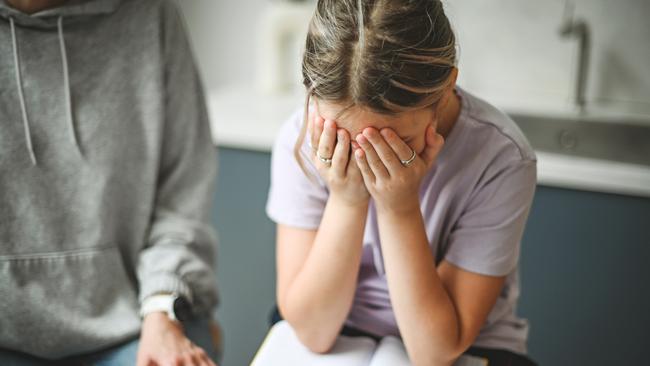Kids reluctant to tell teachers about abuse
Fewer than one in five students who experienced family violence disclosed it to a teacher or school counsellor, according to a Monash University study.

Fewer than one in five students who experienced family violence disclosed it to a teacher or school counsellor, with more skipping school or becoming fearful of authority figures, with detrimental effects, according to a Monash University study.
Many of the more than 1650 young people surveyed, who had experienced domestic and family violence, said school was “a place to avoid” with some dropping out entirely or regularly skipping class, reporting they would stay home to protect their parents, feared someone noticing bruises, were unable to concentrate due to being kept up by fighting or had lost friendships at school.
“Absence from school can snowball into long-term disengagement from education, academic failure and social isolation if schools aren’t equipped to intervene early and compassionately,” study co-author and Monash Business School Professor Kate Fitz-Gibbon said.
The university researchers who conducted the study, including Dr Rebecca Stewart and Professor Steven Roberts, called for a “national approach” with clear pathways to refer students to appropriate external domestic violence supports, as well as partnerships between schools and specialist services, and trauma-informed training for teachers.
School principals who spoke to The Australian said schools advocated for kids and families as much as they could, but it “can’t be school work” to support a family to leave an unsafe environment.
The study, published in the Australian Journal of Social Issues on Friday, also reported that students commonly transferred distrust from adults at home to authority figures at school.
“It is vital that young people feel safe and supported to disclose experiences of family violence at school,” Professor Fitz-Gibbon said. “But our study found fewer than one in five young people who had experienced family violence disclosed to a teacher or school counsellor. Among those young people that disclosed their experience of domestic violence at school – some described trusted adults who listened, validated them, and connected them to help. But just as many young people described feeling dismissed, ignored, or even harmed by school-based responses that minimised the abuse. There is no consistency in how schools respond.
“Whether a student is believed or supported too often depends on the individual staff member’s training or instincts. That variability is unacceptable. Without a consistent trauma-informed approach, we are missing critical opportunities to support young people and reduce long-term harm.”
A Principal at a northern Adelaide school, who asked to remain anonymous to protect her community, said they have “weekly disclosures of family and domestic violence from students, sometimes more than one a week”.
“We have kids disclose that there are people in the house with knives threatening parents, threatening their mothers. We’ve had children have marks on their body from something or someone hitting them, we’ve had children not wanting to go home,” the principal said.
“We also have some of our mothers coming into the school and disclosing things as well, and quite regularly.”
But she said schools had very limited capacity to “actually do something”, particularly if it was a police matter.
“I do want families and kids to be able to disclose, but I want them to be able to disclose and then there be some authentic support,” she said.
“Schools absolutely advocate, we push for services, we make phone calls, we’ve taken families in cars to emergency accommodation, we’ve helped kids with safety plans around where do we go if that happens … but schools don’t have the resources or the authority to do anything beyond that.”
Australian Primary Principals Association President Angela Falkenberg said schools needed “comprehensive support systems”.
“Children can disclose to teachers, but they need somewhere they can take it and do something with it,” she said.
“The teachers can comfort the child, but the accessing of support, and many schools will tell you there’s no one to refer to, there just aren’t enough people. And we know the issue of housing at the moment. For some they’re staying in this problematic environment, or they’re sleeping in their car.
“This is not school work. Supporting a family to leave an unsafe environment … that can’t be school work. We need to refer to someone.”




To join the conversation, please log in. Don't have an account? Register
Join the conversation, you are commenting as Logout